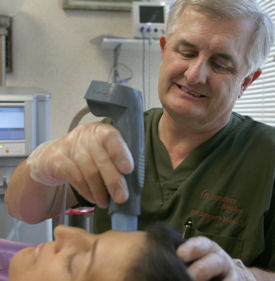Letters
Readers respond to Mindful Medicine, Ethics columns.
Readers react to Mindful Medicine
Dr. Groopman's comments about cognition are valuable. There is no doubt that many diagnostic errors can be attributed to the factors he mentioned: anchoring, availability, and attribution.
I would add that the accelerated pace at which doctors are compelled to practice in order to survive financially because of managed care's unfair regulation of their fees is the catalyst that drives physicians to take cognitive “shortcuts” that lead to the diagnostic errors. Clearly, the error rate would be less if physicians were not so harried and hassled by health insurers.
Doctors are forced to see large numbers of patients to make up for the lowered reimbursements. Even the most brilliant physician with the most logical and objective outlook will make errors because of fatigue and burnout. I hope that future research into cognition takes into account the very human qualities of burnout and demoralization on physicians' abilities to perform as well as they could. It is a part of the equation that is critical.
Edward J. Volpintesta, FACP
Bethel, Conn.
In the first edition of Mindful Medicine (ACP Internist, January 2008) the case of an elderly woman with substernal chest discomfort was presented to illustrate the cognitive pitfalls of anchoring, availability and attribution. The presentation is also an example of another pitfall in medicine, the perpetuation of a misnomer.
We have learned that not all congestive heart failure is “congestive” so we now call it “heart failure,” and that the dependence on insulin does not properly classify diabetes so we now use “Type I” or “Type II.” In this case, the author's report that the patient was diagnosed with a “dissecting aortic aneurysm.” In actuality, the description is of an aortic dissection, as aortic aneurysms enlarge, leak or rupture, while thoracic aortas dissect. The pathophysiology and presentation of these processes are distinct; only the name poses a challenge. Perhaps as we learn to avoid cognitive traps that lead to misdiagnosis, we can also be sure to use the proper nomenclature.
Ronald L. Hirsch, FACP
Elgin, Ill.
Ethics and options
I was delighted to see the attention given to ethical issues in everyday practice, [ACP Internist, January 2008] but I was disappointed in the commentary.
First, physicians can only determine a patient's capacity to make medical decisions based on their ability to explain the risks and benefits of all treatment options as well as electing no treatment. Only a judge can determine a person's competence.
Second, I believe the terminology used in the case demonstrates a biased view. It reads “extensive discussions explaining the need for dialysis.” Using the term “need” implies a paternalistic view. It is better when speaking with patients and families to discuss the “reasons,” “indications” and “purpose” of medical interventions. This better allows them to make a choice regarding their options for care and implies permission to decline the treatment. This patient obviously did not need immediate dialysis to live, as she lived for at least six additional months.
Finally, any patient with serious illness who declines life-prolonging treatment, including dialysis, should be considered for hospice care. Patients and families should always be aware that there are options for treatment even when life-prolonging treatment is declined. Aggressive treatment measures should be taken for any symptoms. In medicine, there is never “nothing else we can do.”
Paula Lester, FACP
Mineola, N.Y.
FDA needs new drug taxonomy
I am reminded that the FDA taxonomy for drugs is inadequate with Ms. [Jessica] Berthold's column regarding alerts, warnings and recalls as well as approvals in the Regulatory Review column.
Given the need for an effective EMR, I am surprised that the ACP has not encouraged the FDA to streamline the existing drug taxonomy system. Highlighting facts is difficult for physicians to integrate into daily practice. I feel that the concept of a medical home will need to provide transparent medication coding based upon an effective taxonomy system that correlates “facts” with a medication management system.
From a population perspective, medication utilization research for large populations would be valid with a streamlined FDA taxonomy system.
Edward M. Fleegler, FACP
Haverford, Pa.
Use caution with meditation
I enjoyed the first issue with your new format. I particularly look forward to Groopman/Hartzband's column. However, the page 1 article, “Physicians practice putting mind over matter” begins with an absurd suggestion. There is no place in medicine for telling a patient to do something harmful to themselves (what happened to “first do no harm?”). And to couch that absurd suggestion as a product of mindfulness is an insult to mindfulness. Mindfulness helps a person listen and empathize. Being “in the moment,” however, is not supposed to lead to abandonment of logic and responsibility.
Daniel Reinharth, FACP
East Meadow, NY




